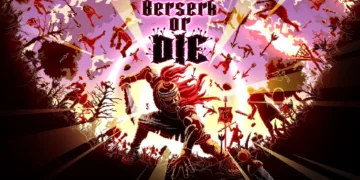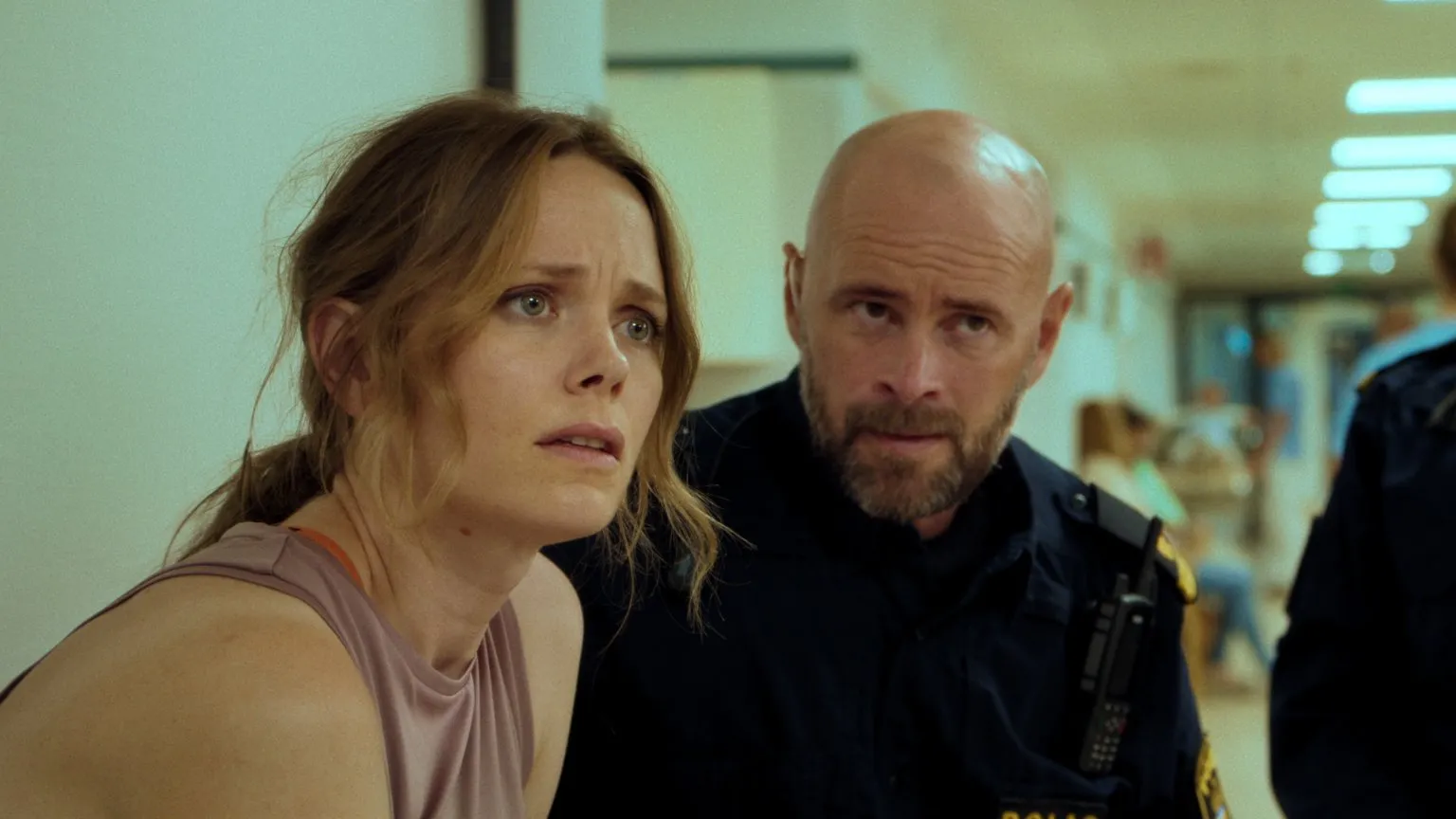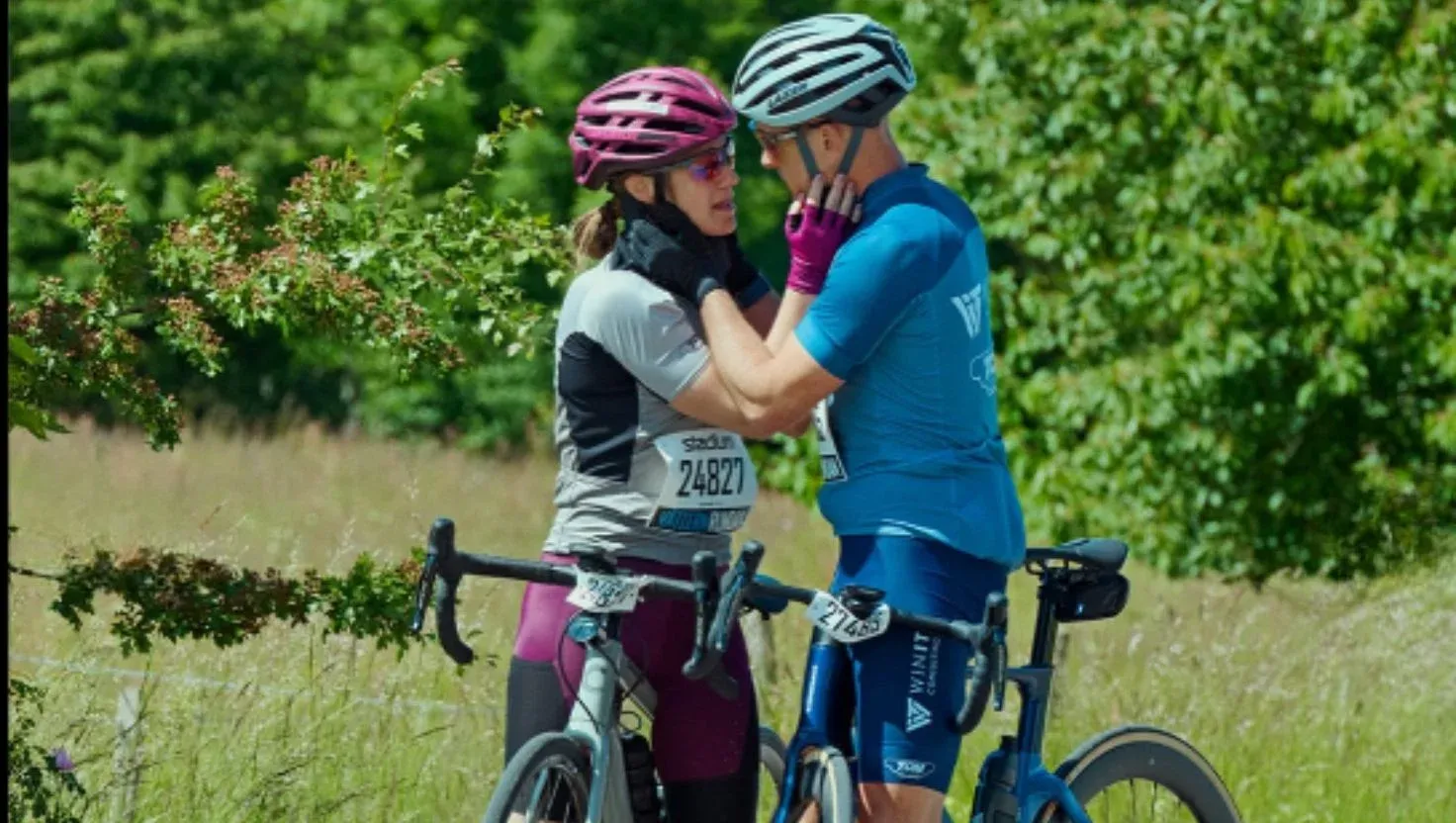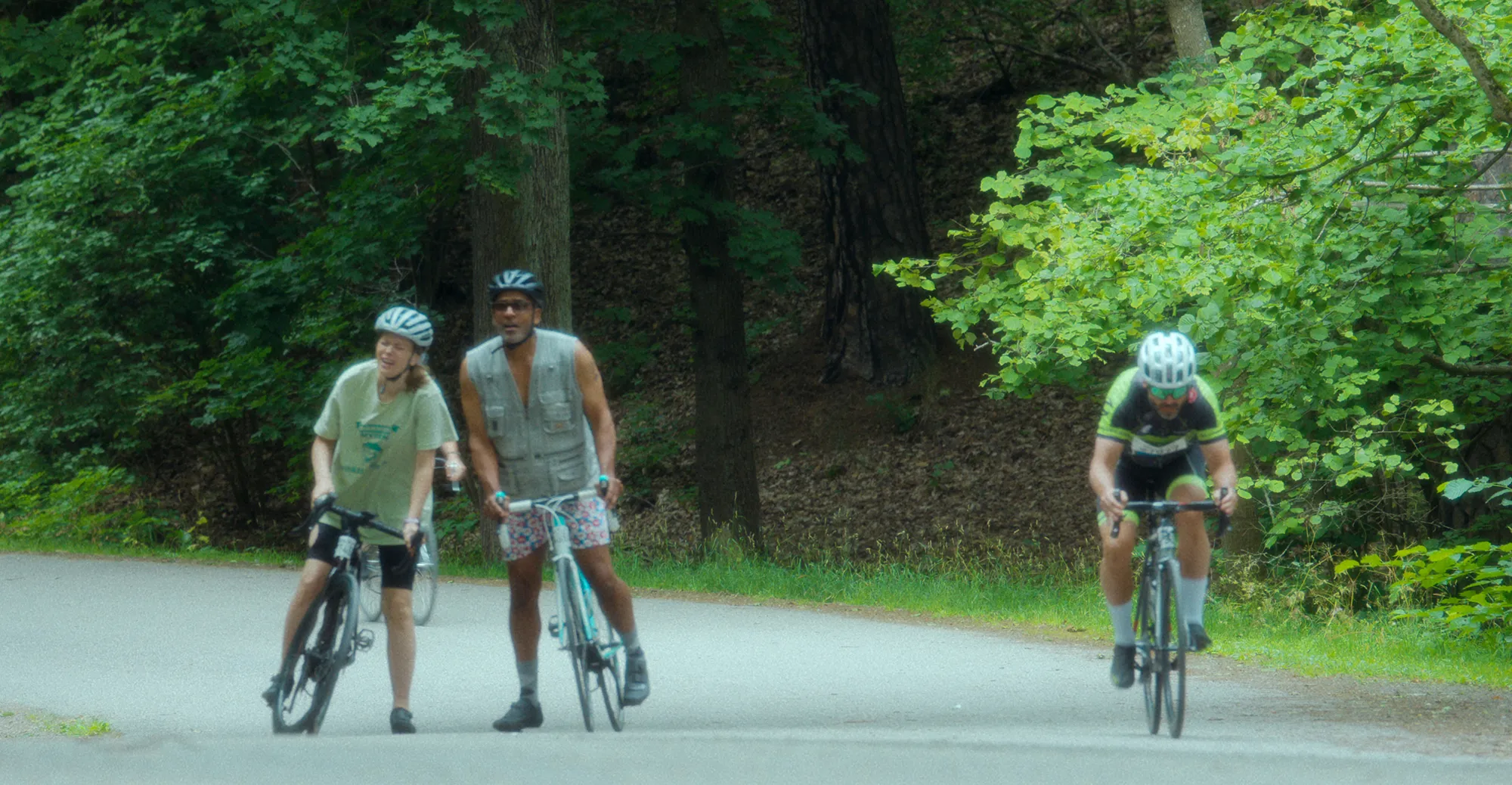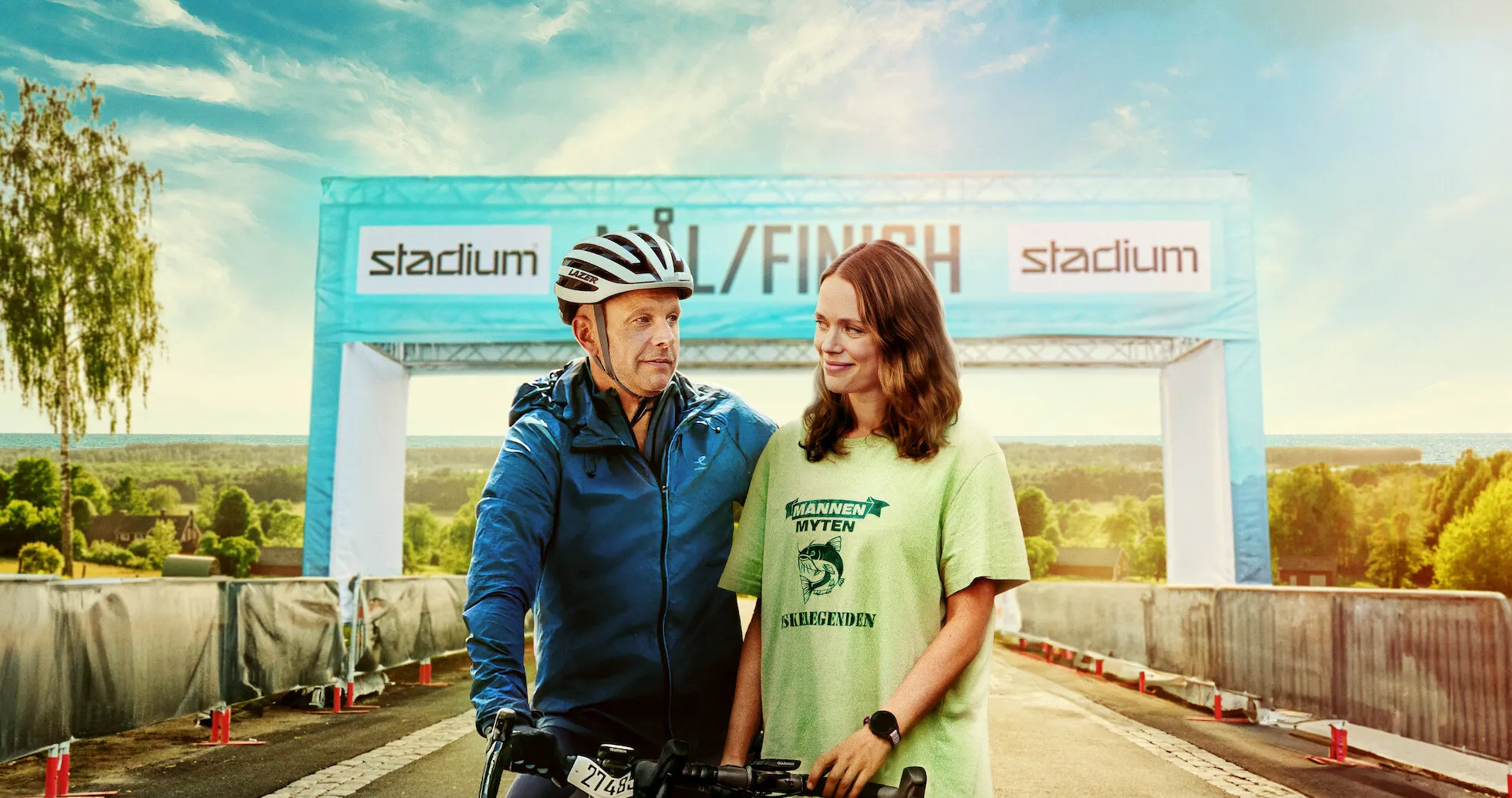Three years on, “Off Track 2” returns us to its Swedish milieu, where familiar figures face refashioned adversities, the passage of time having offered little respite from life’s inherent complexities. Lisa, ostensibly anchored by sobriety and the comforting presence of her daughter Elvira and partner Anders, projects an image of hard-won domestic calm.
Concurrently, her brother Daniel, though now a parent, discovers paternal status offers no immunity to the corrosive forces testing his union with Klara. A familiar recourse presents itself: the crucible of endurance sport. The demanding 192-mile Vätternrundan bicycle race becomes the chosen arena for this sibling pair, a punishing stage for either confronting their acutely personal dilemmas or, perhaps more accurately, attempting a strenuous flight from them.
The narrative positions this grueling physical test as a potential clarifying agent for their tangled adult existences, yet one senses they might simply be cycling into denser, more perplexing emotional landscapes. Herein lies a pointed interrogation of what constitutes genuine advancement, and a stark acknowledgment of how internal battles persist, stubbornly indifferent to the sheen of improved external conditions.
Fault Lines in a Rebuilt Life
Lisa’s carefully constructed new existence – a pedicurist embracing sobriety, a pending mortgage with the dependable Anders, a ring promising forever – swiftly reveals its fragile foundations. The script artfully exposes her internal disquiet, the subtle tremor of doubt beneath the veneer of domestic bliss, where the very pressure of perceived perfection becomes its own antagonist.
Into this precarious balance steps Calle, a phantom from a past life, his re-emergence with old acquaintances reigniting dormant recklessness. His enlistment for the Vätternrundan, a secret kept from Anders alongside a significant injury, transforms the physical ordeal into a potent emblem of her internal war for self-validation.
The film makes a salient point here about the often-circuitous route of personal development; stability achieved is not stability perpetually guaranteed, and old vulnerabilities can resurface with startling force. A fleeting, nearly silent exchange with her father carries an unexpected emotional gravity, hinting at deeper, unarticulated histories. Hers is a curious, delayed maturation, a wrestling match with the very concept of happiness once it appears within reach.
Parallel to Lisa’s unease, Daniel’s domestic sphere is actively crumbling. His and Klara’s life, now complicated by a toddler, is a landscape of marital attrition, with Klara’s desire for dissolution hanging heavy in the air. Daniel’s response to this crisis is telling: a retreat into the familiar rigidity of race preparation, a marked inability to genuinely engage with therapeutic intervention.
His proposal that Klara join him in the grueling Vätternrundan, ostensibly a gesture of reconciliation, reads more as the dictate of a coach than the plea of a partner, betraying a fundamental misapprehension of her needs. One questions if any significant internal shift has occurred for Daniel since the prior film; his methodologies and relational blind spots appear disconcertingly consistent.
Their protracted difficulties offer a stark, if at times wearing, look at the unglamorous attrition that can define long-term partnerships, and the immense, often clumsy, effort required to bridge widening chasms.
Mirrors and Catalysts: The Relational Web
The figures orbiting Lisa and Daniel serve less as fully formed individuals and more as reflections of, or provocations to, the protagonists’ internal states. Anders, the steadfast policeman, embodies a future of placid predictability that Lisa finds oddly disquieting.
His very presence, a symbol of the stability she ostensibly seeks, throws her commitment anxieties into stark relief, particularly as he remains an unwitting emblem of trust while Lisa conceals her risky training with Calle and a painful injury. His character exists largely as a fixed point against which Lisa’s own vacillations are measured.
Klara, meanwhile, articulates a clear yearning for genuine partnership, a stark contrast to Daniel’s emotionally remote, goal-fixated approach. Her desire for divorce stems from a profound need for spontaneity and presence, qualities Daniel seems unable to provide. Her reluctant agreement to train for the Vätternrundan alongside him becomes a poignant, perhaps desperate, experiment in connection, though one immediately senses her deep-seated frustration as he adopts the role of instructor rather than intimate.
Calle, the specter from Lisa’s less regimented past, functions almost as a personified temptation, a mechanism to reignite her dormant restlessness. He is the catalyst forcing her to confront unresolved feelings, though one might argue his characterization seldom transcends the utility of a convenient narrative disrupter, a spark to a pre-existing emotional tinderbox.
The central sibling bond between Lisa and Daniel, once a seemingly pivotal dynamic, appears somewhat attenuated in this iteration. Their individual struggles unfold on largely separate tracks, their interactions less frequent or imbued with the shared understanding that might have previously defined them. This separation, while perhaps true to the isolating nature of their respective crises, leaves a sense of missed opportunity for a deeper exploration of their evolving connection, or its potential erosion, amidst the fresh tempests in their lives.
Imperfect Paths: Life’s Metaphors in Motion
The 192-mile Vätternrundan is, quite explicitly, the film’s central symbolic structure—a grueling stand-in for the protracted effort of existence itself, demanding reserves of perseverance, a dogged determination, and a reliance on the often-frail support of fellow travelers.
Lisa’s palpable physical agony during this cycling marathon becomes a raw, visceral externalization of her inner battles, each pained kilometer a reflection of her psychological endurance test. For Daniel and Klara, their shared participation transforms the race into a high-stakes, mobile laboratory for their fractured marriage, a desperate, pedaling audit of their capacity for mutual support.
Beyond this athletic allegory, the narrative persistently chips away at any simplistic notion of linear personal betterment. The film quietly asserts that milestones such as sobriety or the appearance of a stable partnership are not final victories but merely new plateaus from which old struggles can, and often do, reassert themselves.
There is a candid acknowledgment of the circuitous, often frustrating, nature of self-development, where setbacks are not deviations from the path but an intrinsic part of its topography. This is amplified by the subtle depiction of pressure to maintain an outward facade of composure while internal worlds remain tumultuous.
Commitment, or the profound difficulty of it, forms another significant thematic current. Lisa’s hesitation to fully embrace the secure life offered by Anders, and Daniel’s seeming inability to truly invest in the salvage of his marriage, speak to a modern restlessness, a kind of mid-life bewilderment in the search for authentic direction.
For Lisa, the sheer physical demand of the race becomes an unlikely conduit for self-understanding, a stripping away of pretense through exertion. The film also offers a frank look at contemporary relationships: the specter of divorce, the subtle hints of past or potential infidelities, and the sheer, unglamorous work required to sustain any meaningful connection. It correctly observes that the arrival of a child, far from being a panacea, often introduces new, complex strains into a partnership.
Crafting the Course: Aesthetics and Execution
Mårten Klingberg’s directorial hand attempts a delicate equipoise between comedic lightness and dramatic gravity, generally aiming for a texture of lived reality. The screenplay, a collaborative effort, furnishes moments of keen observation in character behavior, and the dialogue often achieves a natural cadence, though the narrative’s pacing occasionally slackens, with certain sequences lingering perhaps a fraction too long.
This deliberation, while allowing space for character introspection, sometimes tests viewer engagement. The film’s tonal aspirations are mostly met, yet sporadic ventures into broader, almost slapstick humor can feel somewhat incongruous with the more serious emotional undercurrents at play.
Visually, Jan Jonaeus’s cinematography captures the expansive beauty of the Swedish countryside, using natural light to bathe the Vätternrundan scenes in a soft, contemplative glow that mirrors the characters’ internal states. Andreas Tengblad’s musical score, for its part, offers understated support to the emotional beats, seldom intruding but effectively underscoring key moments of tension or reflection.
The performances provide considerable strength. Katia Winter imbues Lisa with a captivating mix of raw vulnerability and defiant spirit, making her internal conflicts palpable. Fredrik Hallgren as Daniel offers a stoic counterpoint, his humor often arising from a well-observed depiction of reserved exasperation. The supporting players, including Rakel Wärmländer’s assertive Klara and Ulf Stenberg’s grounded Anders, fill out their roles with competence, though the chemistry, particularly the crucial sibling dynamic, sometimes feels less potent than the narrative might require.
The Unfinished Lap: Echoes of the Human Condition
What settles in the viewer’s mind after the credits roll is a quiet meditation on life’s persistent friction, an awareness that moments of apparent stability are often just brief respites in a longer, more arduous contest. The film tenders a view of human fallibility not as a defect but as an inherent component of existence, suggesting that to be “off track” is less a failure of navigation and more an acknowledgment of the unceasing effort to find one’s way.
Whether the narrative successfully elevates the race beyond a simple athletic trial to a richer metaphor for the significance of effort, the bonds of companionship, and the insights gleaned from struggle, remains a point of contemplation.
The character arcs resolve less with definitive neatness and more with an acceptance of life’s untidy continuations, leaving certain threads thoughtfully unknotted. Ultimately, the film posits personal development not as a steady ascent but as a recurring pattern: a cycle of strenuous exertion, inevitable missteps, and the quiet necessity of renewed attempts against an ever-receding horizon.
Off Track 2 premiered on Netflix on May 23, 2025.
Full Credits
Director: Mårten Klingberg
Writers: Maria Karlsson, Christin Magdu, Mårten Klingberg
Producer: Josephine Wallner
Cast: Katia Winter, Fredrik Hallgren, Rakel Wärmländer, Ulf Stenberg, Alexander Karim, Sara Chaanhing Kennedy, Christian Wennberg, Claes Månsson, Sten Ljunggren, Kelly Flogell
Director of Photography (Cinematographer): Jan Jonaeus
Editor: Henrik Källberg
Composer: Andreas Tengblad
The Review
Off Track 2
Off Track 2 offers a reflective, if somewhat uneven, continuation of its characters' struggles with adult life and personal growth. Strong performances and moments of genuine insight into the complexities of commitment and the cyclical nature of self-development are tempered by familiar narrative beats and occasional tonal imbalances. It’s a film that invites contemplation on life’s imperfect course, even if its own path isn’t always smoothly paved.
PROS
- Katia Winter's nuanced lead performance.
- Thoughtful depiction of personal growth's complexities.
- Visually appealing Swedish landscapes.
- Moments of authentic emotional depth.
CONS
- Pacing can be inconsistent and slow.
- Humor sometimes feels out of place.
- Some plot elements feel formulaic.
- Sibling dynamic less central than anticipated.







































